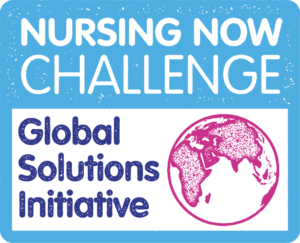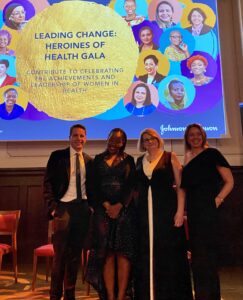What happens after the storm? The sun shines again.
This blog was written by Amy Staley, Registered Nurse & Co-Chair, Americas Regional Hub,
Challengers Committee.
I kicked off World Health Worker’s Week as a virtual speaker at the “Covid, After the Storm?” Harvey Cushing Symposium in Paris. I spoke among several empowering physicians including Dr. Laura Forese the Executive Vice President and COO of New York Presbyterian Hospital, Didier Jaffre Head of Care provision at the Regional Health Agency Ile-de-France, and Valérie Guerreiro Head Nurse at the American Hospital of Paris. At this event, I discussed my experiences working as a nurse on the frontlines of the pandemic as well as some strategies that we learned in New York that carried us through.
The COVID-19 pandemic taught us to prepare for uncertainty. Although we do not know what the future holds, some of the strategies that we are using to prepare for the uncertain future include extra training and support for nurses and a strong emphasis on mental health and well-being. During the height of the pandemic, our ICU nurses created an ICU crash course to teach acute floor nurses how to handle emergent situations and care for more critical patients. It was at this time that we realised that an ICU does not necessarily need to be in a specific environment, but rather that any area could serve as an ICU if nurses were provided with the proper training and support. We also used disposable meal trays to prevent infection and ensured to have “CODE PPE” readily available on all CODE carts to protect staff.
Of the countless resources that we were provided with during this time, some of the most prominent included a psychiatric symptoms tracker and complimentary confidential access to mental health counselors. These mental health counselors were also made available to families of staff as well. It is currently projected that 500,000 nurses will leave the profession by the end of the year. This would create a shortage of approximately 1.1 million nurses. One of the essentials to nurse retention is recognition. My hospital has a variety of different avenues in which nurses are currently celebrated and recognised and continues to develop new and exciting means of making sure that nurses are heard and know that they are valued.
This year’s World Health Worker’s Week theme is “Building back better” and I truly believe that with the power of solidarity, togetherness, and the Nursing Now Challenge community, our new “Normal” and profession will be even greater than it was before.
What happens after the storm? The sun shines again.




